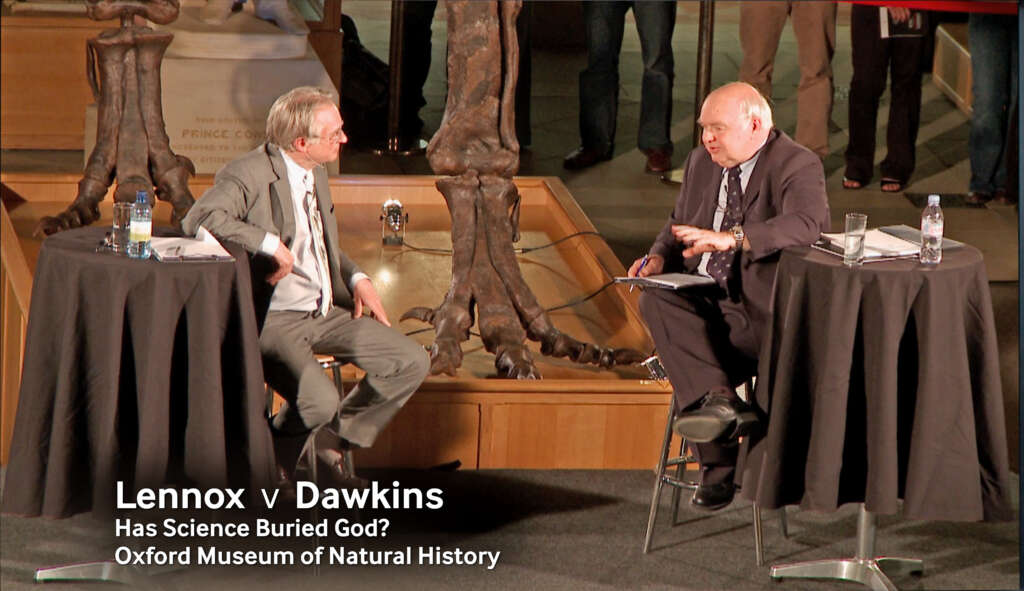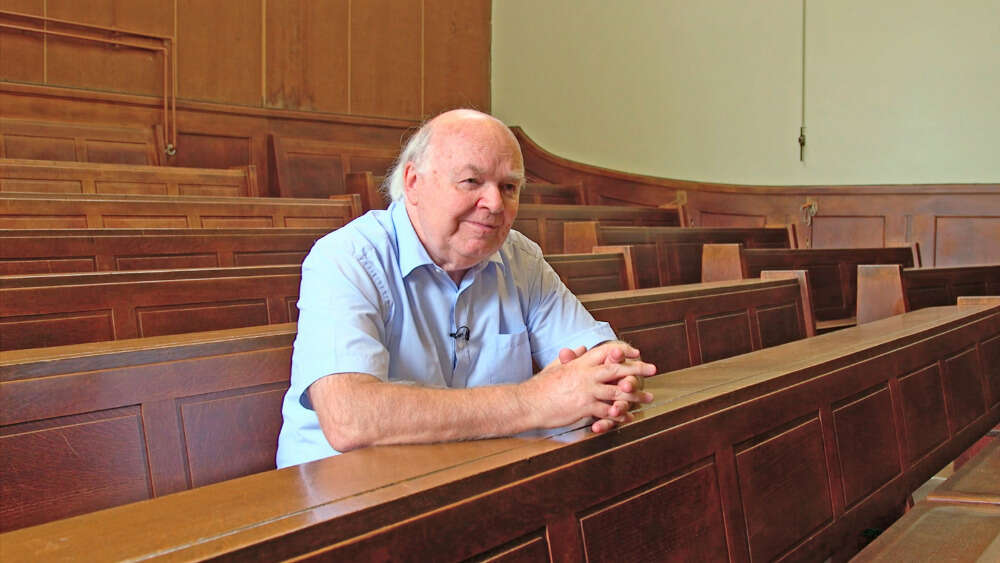The remarkable parents of John Lennox
The making of a Christian apologist
John Lennox is an internationally renowned mathematician, bioethicist and defender of the Christian faith. You probably know that already. But what you might not know about Lennox is he was raised in a “remarkable sort of Christian” household.
“My parents were remarkable. They weren’t highly educated people, but they believed in questioning. This wasn’t only confined to Christianity. My father insisted, really, that I read other worldviews,” Lennox, professor of mathematics (emeritus) at Oxford University, tells Eternity.
“Although [my parents] were profoundly committed to Christianity, they didn’t ram it down my throat. They loved me enough to give me space to think through and come to my own conviction. So that when I went to Cambridge [University], I didn’t jettison my Christianity like so many of my contemporaries did, because they never were convinced personally. They’d had it pushed into them and of course it left them because it wasn’t part of their own conviction.”
Lennox is the author of numerous books which explore the relationship between science, philosophy and religion, including Can Science Explain Everything?, Gunning For God and God and Stephen Hawking: Whose Design is It Anyway?. His most recent offerings include 2084: Artificial Intelligence and the Future of Humanity and Where is God in a Coronavirus World?
Oh, and for good measure, he also has a new film Against the Tide being released this month in Australia.
However, Lennox is most widely known for fearlessly engaging in public debates with prominent atheist academics such as Richard Dawkins, Peter Singer and Christopher Hitchens – including the legendary ‘God Delusion’ debate with Dawkins in Alabama in 2007.
His popular approach to defending the Christian faith – along with his Northern Irish heritage and association with Oxford University – have led some to liken him to author and theologian C.S. Lewis.

John Lennox (right) debates with atheist scientist Richard Dawkins in 2007
“I have spent my whole life, long before these debates, opening myself to criticism and comment and questioning. That’s the way I’ve learned. That’s where my convictions come from,” says Lennox.
He adds: “I’ve been doing this since I was a teenager and at Cambridge [University], and so on. I never have hid my light under a bushel.”
“… You know what you believe [and] you also know why you believe.” – John Lennox
Lennox says his approach to apologetics was shaped by his parents’ openness towards people with other beliefs.
“My parents were not sectarian in a very sectarian, divided country – Northern Ireland. And that was shown in the fact that my father employed equally, as best he could, in his store of around 30 employees across the Protestant-Catholic divide. And he was bombed for it,” he recalls.
“[My father] explained to me that the reason he did it was because Scripture taught that all men and women – irrespective of their confessional faith, irrespective of their worldview – were made in the image of God, and he intended to treat them like that.
“That left a deep, deep impression on me, because it cost him something to do that.
“I’ve tried to model that in my debates as best I can. You need to respect people and listen to what they have to say. Otherwise, you’re not qualified to engage in the debate.”
His upbringing also allowed Lennox to embrace doubt when it comes to his faith, rather than to fear it.
“The trouble with the word ‘doubt’ is that people think of a sinking feeling, of a black hole of despair. But doubt in the sense of dubitāre, the Latin etymology, means to be in two minds. Now, once you face questions from an opponent, whether hostile or not, they are raising in your mind the possibility of an alternative explanation. And if that’s what you mean by doubt, that’s where my Christian faith comes from and resolving all those types of questions.
“[French philospher Rene] Descartes talked about systematically doubting everything, questioning it. I’ve been taught to do that, both as a scientist and a Christian. And it’s where real conviction comes from, because you know what you believe but you also know why you believe.”
“It’s not a leap of faith. It’s a step into the light, evidence-based.” – John Lennox
In this way, Lennox stresses that becoming a Christian, for him, is not about making a “leap of faith”.
“It’s not a leap of faith. It’s a step into the light, evidence-based. I find this idea of the leap of faith almost dangerous in a way, because it fits in with the false definition of faith which atheists love. For them (such as [Richard] Dawkins), faith is a religious concept, which means believing whether there’s no evidence. But that’s not true.
“Let me put it another way. I go into a bank. I want to borrow some money, let’s say a hundred thousand dollars. The banker doesn’t make a leap of faith to trust me with the money. He asks me for evidence to show that I’m going to be able to pay him back. He looks for evidence and he makes a faith commitment, but it’s on the basis of that evidence.
“So I would never speak of a leap of faith [in regard to Christianity], except the leap of faith that is represented in atheistic belief. I feel that is a leap because it’s not rationally justifiable.”
Professor Lennox ends his conversation with Eternity in the same way that he might close a debate or one of the many interviews in which he has defended his position. In fact, he admits to being interviewed 300 times in the past year, since the release of his book Where is God in a Coronavirus World?.
“I believe that Christianity is true, not simply that it’s helpful,” says Lennox. “But actually it is the true account of reality of our relationship to God, to the universe and to one another.
“And therefore, I feel an explicit calling – based on what Christ says to go into all the world and make disciples of all nations – that this is something that I don’t keep for my own private space. I’m called upon to explain it and to herald it, to witness to God in a world where there’s quite a bit of antagonism.”


